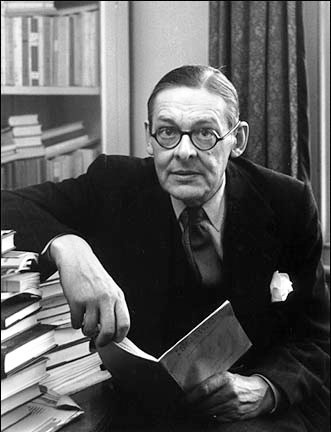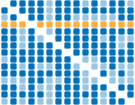Eliot, T. S.: Vén Szórakaténusz (Old Deuteronomy in Hungarian)
|
Old Deuteronomy (English)Old Deuteronomy's lived a long time; He's a Cat who has lived many lives in succession. He was famous in proverb and famous in rhyme A long while before Queen Victoria's accession. Old Deuteronomy's buried nine wives And more--I am tempted to say, ninety-nine; And his numerous progeny prospers and thrives And the village is proud of him in his decline. At the sight of that placid and bland physiognomy, When he sits in the sun on the vicarage wall, The Oldest Inhabitant croaks: "Well, of all . . . Things. . . Can it be . . . really! . . . No!. . . Yes!. . . Ho! hi! Oh, my eye! My mind may be wandering, but I confess I believe it is Old Deuteronomy!"
Old Deuteronomy sits in the street, He sits in the High Street on market day; The bullocks may bellow, the sheep they may bleat, But the dogs and the herdsmen will turn them away. The cars and the lorries run over the kerb, And the villagers put up a notice: ROAD CLOSED-- So that nothing untoward may chance to distrub Deuteronomy's rest when he feels so disposed Or when he's engaged in domestic economy: And the Oldest Inhabitant croaks: "Well, of all . . . Things. . . Can it be . . . really! . . . No!. . . Yes!. . . Ho! hi! Oh, my eye! My sight's unreliable, but I can guess That the cause of the trouble is Old Deuteronomy!"
Old Deuteronomy lies on the floor Of the Fox and French Horn for his afternoon sleep; And when the men say: "There's just time for one more," Then the landlady from her back parlour will peep And say: "New then, out you go, by the back door, For Old Deuteronomy mustn't be woken-- I'll have the police if there's any uproar"-- And out they all shuffle, without a word spoken. The digestive repose of that feline's gastronomy Must never be broken, whatever befall: And the Oldest Inhabitant croaks: "Well, of all . . . Things. . . Can it be . . . really! . . . No!. . . Yes!. . . Ho! hi! Oh, my eye! My legs may be tottery, I must go slow And be careful of Old Deuteronomy!"
|
Vén Szórakaténusz (Hungarian)Vén Szórakaténusz a macska-apó: Sok életet élt, több macska létet. Már zengte a dal, hírdette a szó, Amikor Viktória trónra se lépett. Kilenc feleséget eltemetett (Kilencvenet is - de ne vessük a latra): Ivadékai számosak, ifjú sereg, S a kis falu büszke a szőrfejű aggra. Oly nyájas, erénydús, mint egy nazarénus, Ha kibámul a paplaki ablakon át, S a Község Véne motyogja:"Nahát! Odanézz...nem igaz...nonono...de igen! Ej! Haj! Semmi baj! Bevallom, azt se tudom hol áll a fejem, Ez biztosan ő, a Szórakaténusz!"
Vén Szórakaténusz az útra kiül, S ha piacnapokon van kedve neki, Hát bőghet a száz bika éktelenül, A pásztor a csordát eltereli. Kitér a szekér, s felrakja a község Az Út ELZÁRVA írást ügyesen. Hogy meg ne zavarják, meg ne böködjék Vén Szórakaténuszt, hogyha pihen, Vagy jár az eszében egy ókori rébusz: S a Község Véne motyogja:"Nahát! Odanézz...nem igaz...nonono...de igen! Ej! Haj! Semmi baj! Öreg vagyok én, de jó a szemem, A zűr oka Szóraka-,Szórakaténusz!"
Vén Szórakaténusz a Francia Róka S a Vadászkürt padlóján heverész: S ha zúgja a nép:"Még kéne itóka!" A kocsmárosné szól:"Gyülevész! Hogyan vetemedtek efféle ricsajra, Ha Szórakaténusz emészti ebédtejét? Nyakamon van a rendőr, szép kalamajka!" S lábujjhegyen akkor eloszlik a népség. Had' emésztődjék meg a csont, a tehénhús, Aludja ki jól az a drága magát: S a Község Véne motyogja: "Nahát! Odanézz...nem igaz...nonono...de igen! Ej! Haj! Semmi baj! Még vinne a lábam, elég sebesen, De vigyáznom kell rád, Szórakaténusz!"
|





